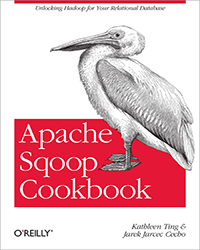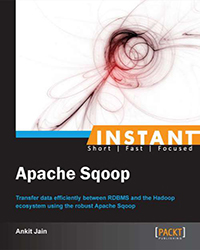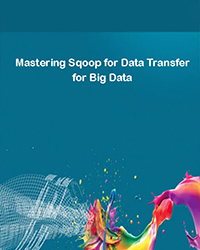Best Sqoop Books For Beginners & Experienced Professionals
As we all know the books play a vital role in our learning. Also, the selection of a book is a very important step to learn well. Hence, we gonna help you to select the best book to learn Apache Sqoop. This blog carries the information of best Sqoop books.
To learn Sqoop these books are better, there are all types of sqoop books in this post, like for beginners as well as of the advanced level. This blog also covers a brief description of best Sqoop books, to select each as per requirements.
List of Some Prominent Sqoop Books
1. Apache Sqoop Cookbook – Unlocking Hadoop for Your Relational Database
by Kathleen Ting & Jarek Jarec Cecho
Since in the age of big data it became essential to integrate data from multiple sources. However, it could be a challenging and time-consuming task. To ease this task, we can use this handy cookbook. It contains ample of ready-to-use recipes for using Apache Sqoop. Also, the command-line interface application that optimizes data transfers between relational databases and Hadoop.
Well, Sqoop is both bewildering as well as the powerful tool. Although, this cookbook’s problem-solution-discussion format makes it easier to learn. This book ensures that we quickly learn how to deploy and then apply Sqoop in our environment.
In this book, there are ample examples of MySQL, Oracle, and PostgreSQL database on GitHub so that we can quickly adapt for SQL Server, Netezza, Teradata, or other relational systems. Hence, this book will definitely help to create a foundation for fresh learners. Moreover, its examples will attract experience coders to brush up their Sqoop skills.
2. Instant Apache Sqoop
by Ankit Jain
There is one more best book for learning Sqoop, that is Instant Apache Sqoop by Ankit Jain. It is a practical, hands-on guide that offers a number of clear, step-by-step exercises. Basically, these exercises will help you to take advantage of the real power of Apache Sqoop. Also, it provides a good grounding in the knowledge required to transfer data between RDBMS and the Hadoop ecosystem.
Moreover, this book looks at the import/export process required for data transfer. It also discusses the examples of each process. Likewise, this book contains an overview of HBase and Hive table structures and how you can populate HBase and Hive tables. In addition, there is a number of third-party Sqoop connectors information in this book.
However, to learn to use these arguments to move data between RDBMS and the Hadoop ecosystem, this book is the best buddy. You will learn about several import and export arguments here. Although, it also contains the architecture of Sqoop import and export processes. Also, this book gives the ride to Sqoop connectors and discuss examples of each connector.
Well, this is the book for you if you want to move data between RDBMS and the Hadoop ecosystem.
3. Mastering Sqoop for Data Transfer for Big Data
by Jarek Jarcec Cecho and Kathleen Ting
This book is written by Jarek Jarcec Cecho and Kathleen Ting, they both are Apache Sqoop Committer, PMC Members. Hence they have covered each and every aspect of Sqoop in this book. Specifically, they have clarified the differences between connectors and drivers.
Also, it is discussed why both are needed to transfer data between relational databases and Hadoop ecosystem. Moreover, this book is best for both fresh learners as well as experienced developers.
Summary
Hence, we have seen the best Sqoop books, which may prove essential in your learning. However, we assure you will not close a book without learning something. We hope referring these books will help you to learn Sqoop and make a strong foundation on Sqoop. Also, with the help of the above description, choose the book which better suits your requirements. Happy Sqooping!
If you are Happy with DataFlair, do not forget to make us happy with your positive feedback on Google




